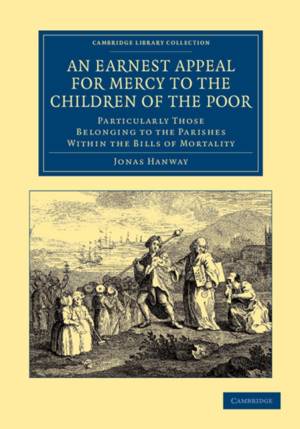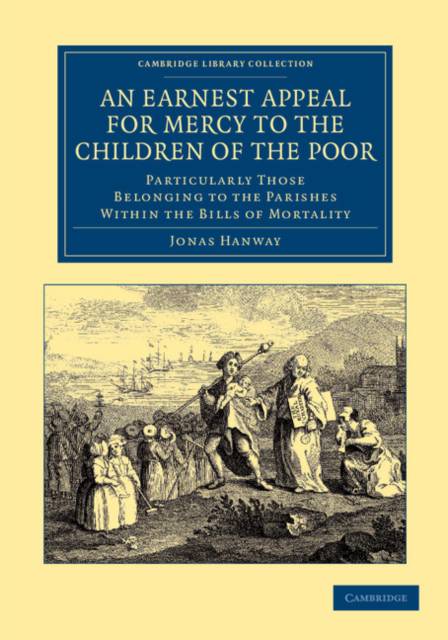
- Afhalen na 1 uur in een winkel met voorraad
- Gratis thuislevering in België vanaf € 30
- Ruim aanbod met 7 miljoen producten
- Afhalen na 1 uur in een winkel met voorraad
- Gratis thuislevering in België vanaf € 30
- Ruim aanbod met 7 miljoen producten
Zoeken
An Earnest Appeal for Mercy to the Children of the Poor
Particularly Those Belonging to the Parishes Within the Bills of Mortality
Jonas Hanway
€ 72,95
+ 145 punten
Omschrijving
In eighteenth-century London, abandoned children were one of the social groups most affected by the harsh living conditions. Several charitable initiatives had endeavoured to alleviate the problem, not least the Foundling Hospital, of which Jonas Hanway (c.1712-86) was a governor. His tireless philanthropy and campaigning resulted in the 1762 Registers Bill, which required parishes to keep records of the poor children they looked after. In this tract, first published in 1766, Hanway uses information collected from these registers to demonstrate the appalling mortality rates of orphans in care in London, calling for radical reform. This work was instrumental in the passage of the 1767 act that resulted in a dramatic fall in the number of infant deaths over the following decade. It is a powerful exposé of the failures of the capital's care system, as well as a testament to the influence of philanthropic activism.
Specificaties
Betrokkenen
- Auteur(s):
- Uitgeverij:
Inhoud
- Aantal bladzijden:
- 156
- Taal:
- Engels
- Reeks:
Eigenschappen
- Productcode (EAN):
- 9781108060929
- Verschijningsdatum:
- 22/08/2013
- Uitvoering:
- Paperback
- Formaat:
- Trade paperback (VS)
- Afmetingen:
- 178 mm x 254 mm
- Gewicht:
- 281 g

Alleen bij Standaard Boekhandel
+ 145 punten op je klantenkaart van Standaard Boekhandel
Beoordelingen
We publiceren alleen reviews die voldoen aan de voorwaarden voor reviews. Bekijk onze voorwaarden voor reviews.











